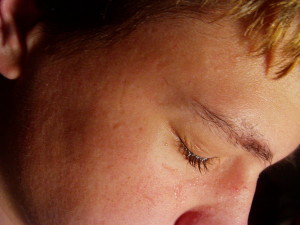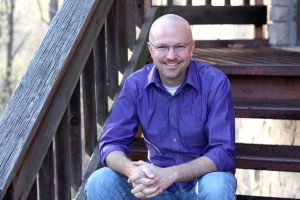
Common sense has long assumed that a troubled childhood has the potential to result in a troubled adult life. We are learning that this is not only common sense, but a scientifically valid conclusion as research shows the connections between facing adversity in early life and increased vulnerability to health problems, mental illness, and substance abuse.
The CDC-Kaiser Permanente Adverse Childhood Experiences Study (ACE) [1] first conducted between 1995 and 1997 explored the connection between challenges faced by children in early life and later development of disease, alcohol and drug abuse, mental health problems, education achieved, occupational success, and lifespan.
The types of adverse childhood experiences (ACEs) identified in the original study were categorized into abuse, household challenges, and neglect. Since then, other studies have expanded the definitions of an ACE to include "racism, witnessing violence outside the home, bullying, losing a parent to deportation, living in an unsafe neighborhood, and involvement with the foster care system." [2] The findings include:
- 64% of people have at least one ACE
- 12% of people have an ACE score of 4.
- An ACE score of 4 increases the chances of becoming an alcoholic by 700% and the risk of attempted suicide by 1200%.
- Those with an ACE score of 6 or higher are more likely to have a shorter life span.
As the number of ACEs increases, so do the risk of adverse life outcomes. In other words, the more challenges a child faces, the more likely she will grow into an adult struggling with health problems, occupational issues, relational struggles, and substance or alcohol abuse.
- People with adverse childhood experiences are 2-4 times more likely to use drugs and alcohol.
- People with a score of five or higher are 7-10 times more likely to inject illegal drugs. [2]
 Dr. Daniel Sumrok, medical director for Integrative Health Center in Tennessee, believes that there is a direct link between traumatic experiences and subsequent addiction to opioids and other drugs. He thinks we need to change the way we think about substance abuse and understand it as a natural response to trauma. In fact, he doesn't think it should be called addiction, but "ritualized comfort-seeking."
Dr. Daniel Sumrok, medical director for Integrative Health Center in Tennessee, believes that there is a direct link between traumatic experiences and subsequent addiction to opioids and other drugs. He thinks we need to change the way we think about substance abuse and understand it as a natural response to trauma. In fact, he doesn't think it should be called addiction, but "ritualized comfort-seeking."
Another recent study has connected early life adversity (ELA) to opioid addiction. Published in the Journal of Molecular Psychiatry, researchers from the Department of Neurobiology & Behavior at the University of California—Irvine predicted that individuals with challenges in early life are disproportionately prone to opioid addiction. Using laboratory conditions to create ELA in rats, they found that poverty-like rearing during sensitive developmental periods can lead to vulnerability to the addictive effects of opioid drugs. [3]
The more we learn about trauma, adverse childhood experiences (alternatively called ELA), the more we can do to prevent difficulties later in life, including opioid addiction. To take the ACE quiz, visit https://acestoohigh.com/got-your-ace-score/.
REFERENCES
1. Preventing Adverse Childhood Experiences |Violence Prevention|Injury Center|CDC. (2020, April 3). Retrieved April 25, 2020, from https://www.cdc.gov/violenceprevention/childabuseandneglect/aces/fastfact.html
2. Stevens, J. E. (2017, October 2). Addiction doc says: It's not the drugs. It's the ACEs...adverse childhood experiences. Retrieved April 25, 2020, from https://acestoohigh.com/2017/05/02/addiction-doc-says-stop-chasing-the-drug-focus-on-aces-people-can-recover/
3. Levis, S. C., Bentzley, B. S., Molet, J., Bolton, J. L., Perrone, C. R., Baram, T. Z., & Mahler, S. V. (2019, December 10). On the early life origins of vulnerability to opioid addiction. Retrieved April 25, 2020, from https://www.nature.com/articles/s41380-019-0628-5
About the Authors:
 Travis Stewart, LPC has been mentoring others since 1992 and became a Licensed Professional Counselor in 2005. His counseling approach is relational and creative, helping people understand their story while also building hope for the future. Travis has experience with a wide variety of issues which might lead people to seek out professional counseling help. This includes a special interest in helping those with compulsive and addictive behaviors such as internet and screen addiction, eating disorders, anxiety, and perfectionism. Travis' website is wtravisstewart.com
Travis Stewart, LPC has been mentoring others since 1992 and became a Licensed Professional Counselor in 2005. His counseling approach is relational and creative, helping people understand their story while also building hope for the future. Travis has experience with a wide variety of issues which might lead people to seek out professional counseling help. This includes a special interest in helping those with compulsive and addictive behaviors such as internet and screen addiction, eating disorders, anxiety, and perfectionism. Travis' website is wtravisstewart.com
Laura J. Stewart, Missouri State University
Laura J. Stewart received her Bachelor degrees in Psychology and Gerontology in 2020 from Missouri State University. She has worked with senior adults in an assisted living environment and as a mental health tech in residential eating disorder treatment. Her interests include eating disorders, gerontology, and organizational psychology.
The opinions and views of our guest contributors are shared to provide a broad perspective of addictions. These are not necessarily the views of Addiction Hope, but an effort to offer a discussion of various issues by different concerned individuals.
We at Addiction Hope understand that addictions result from multiple physical, emotional, environmental and genetic factors. If you or a loved one are suffering from an addiction, please know that there is hope for you, and seek immediate professional help.
Reviewed and Approved by Jacquelyn Ekern, MS, LPC on May 11, 2020
Published May 11, 2020, on AddictionHope.com
